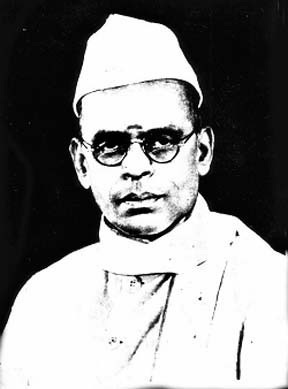S. Satyamurti: The Doyen of Madras Politics and Mentor to a Generation
By Amit Kumar
Born on 19 August 1887 in Thirumayam in the erstwhile princely state of Pudukkottai, Sundara Sastri Satyamurti emerged as one of southern India’s most influential political leaders during the long struggle for Indian independence. Renowned for his commanding rhetoric and unyielding commitment to public service, Satyamurti’s presence was felt both in the halls of the Indian National Congress and on the streets of Madras.

A diligent student from the start, Satyamurti graduated from Madras Christian College before studying law—a discipline that shaped his eloquent oratory and sense of justice. Guided by his early mentor S. Srinivasa Iyengar, Satyamurti entered nationalist politics at a young age. His early activism included protesting the Partition of Bengal, the Rowlatt Act, and the Jallianwala Bagh massacre.
Satyamurti’s rise through Congress ranks was marked by a series of crucial appointments. He led the Madras Swaraj Party from 1930 to 1934, served as president of the Tamil Nadu Congress Committee between 1936 and 1939, and represented the Presidency in the Imperial Legislative Council until 1940. In 1939, he took office as Mayor of Madras—a role that coincided with the tumult of World War II and the city’s acute water crisis. He became instrumental in pushing through the construction of the Poondi Reservoir, a vital lifeline for Madras, whose foundation was laid in record time due to his diplomatic acumen and persistence.
Ever the progressive, Satyamurti championed social equality, communal harmony, and parliamentary democracy, remaining steadfastly opposed to the caste system and supporting participation in legislative politics when such a stance was controversial. As a political mentor, he shaped the career of K. Kamaraj, who would later become Chief Minister of Madras State.
Satyamurti was arrested multiple times by British authorities—most notably in 1930 and during the Quit India Movement in 1942, leading to injuries that contributed to his death on 28 March 1943.
Honoured posthumously with memorials, a commemorative stamp, and a lasting legacy, Satyamurti’s life exemplifies the ideals of selfless leadership and the relentless pursuit of justice in India’s freedom struggle
